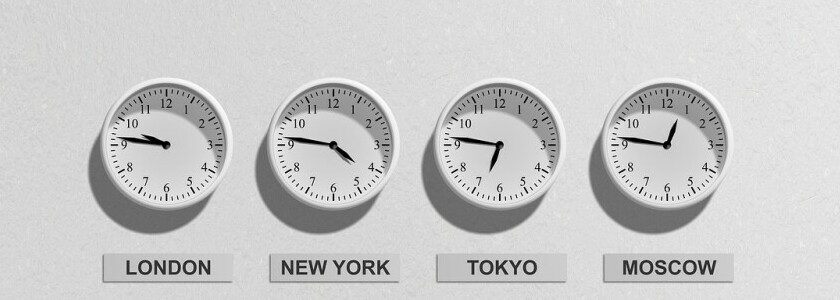 If you’ve ever felt that there aren’t enough hours in the day, you’re not alone. The sense of racing against the clock can be a significant source of stress and anxiety. But what’s really going on here? Stress often comes from a feeling that you’re not in control, and anxiety can bubble up when you’re uncertain about the future. Poor time management can exacerbate both these feelings, leaving you in a cycle of worry and inefficiency.
If you’ve ever felt that there aren’t enough hours in the day, you’re not alone. The sense of racing against the clock can be a significant source of stress and anxiety. But what’s really going on here? Stress often comes from a feeling that you’re not in control, and anxiety can bubble up when you’re uncertain about the future. Poor time management can exacerbate both these feelings, leaving you in a cycle of worry and inefficiency.
You’re going to find out about the psychological impact of letting your to-do list run wild. Without a plan, tasks can loom large, deadlines race closer and your heartbeat might just keep pace. Conversely, taking control of your schedule can help reduce the mental clutter that contributes to stress. It’s not just about missing deadlines or being late, it’s also about the psychological burden of feeling perpetually behind.
 This isn’t just about work. Our personal lives are filled with activities, responsibilities, and goals. When you don’t manage time well, you might miss out on rest, recreation, or moments with loved ones. Knowing this, it’s clear why becoming adept at managing your time isn’t just a productivity hack; it’s a critical component of taking care of your mental health.
This isn’t just about work. Our personal lives are filled with activities, responsibilities, and goals. When you don’t manage time well, you might miss out on rest, recreation, or moments with loved ones. Knowing this, it’s clear why becoming adept at managing your time isn’t just a productivity hack; it’s a critical component of taking care of your mental health.
Now, stress and anxiety from time mismanagement don’t just put a damper on your day—they can ripple out and disturb your overall quality of life. Anxiety keeps you up at night, worry eats at your quiet moments, and stress can even turn physical, with headaches, stomach issues, and other symptoms.
I’m here to help you with strategies that can bring down the stress and dial back the anxiety. Getting a grip on your time means less rushing, fewer racing thoughts, and a calmer state of mind. Next, I’m going to walk you through the fundamentals of effective time management. A strong foundation in these skills can turn the tide on stress and anxiety, leading to a more organized, peaceful daily life.
Fundamentals of Effective Time Management
I’m going to break down the core elements that can transform your day from a chaotic sprint into a structured marathon. First things first: it’s crucial to understand the difference between urgent and important tasks. The urgent ones scream for your attention but aren’t necessarily crucial for your goals, while important tasks are those that contribute to your long-term objectives.
You’re going to find out about creating a solid daily routine. This isn’t just about sticking to a schedule; it’s also about carving out space for your priorities. Think of your routine as a framework that supports your day, not a rigid set of rules that you have to follow.
Let’s not forget the digital tools at your disposal. From planners to productivity apps, these resources are designed to keep you on track. But don’t worry too much about finding the perfect app on your first try. Your needs might evolve, and you can always adjust your approach down the road.
Strategies to Minimize Stress Through Time Management
Setting realistic goals is critical to managing your stress levels. You might think piling up tasks can demonstrate productivity, but it often leads to burnout. Choose something that resonates with you, a project or task you’re passionate about, and set an achievable goal. This isn’t just about finishing the task; it’s also about the satisfaction of ticking off a box on your to-do list without feeling overwhelmed.
Saying no is a skill I think everyone should master. It’s about knowing your limits and protecting your time. When you take on more than you can handle, stress and anxiety are bound to follow. Set clear boundaries for yourself and communicate them to others. This is going to include being transparent about what you can take on and what you need to pass on.
Don’t forget to take breaks. Regular breaks are essential, not just for your physical health but for your mental well-being too. It can be as simple as stepping outside for a breath of fresh air, stretching, or having a five-minute meditation session. Incorporating these moments into your day can dramatically reduce stress levels. Remember, being busy isn’t the same as being productive.
Self-care is non-negotiable. It encompasses a variety of activities that you do to take care of your emotional, mental, and physical health. Don’t worry too much about creating an elaborate routine – it’s the simple things like reading a book, going for a walk, or enjoying your favorite hobby that can make a big difference in managing your stress.
Maintaining Consistency in Your Time Management Efforts
I’m going to share a little secret with you: the true magic of time management is consistency. It’s not enough to simply apply good practices for a few days; what you’re looking for is a steady rhythm that can carry you through the ups and downs of life.
Monitoring your progress is crucial. You can always tweak your schedule and strategies as you learn what works best for you. Remember, this isn’t just about rigid schedules; it’s also about flexibility and adapting to change.
When setbacks happen—and they will—don’t be too hard on yourself. Every mistake is a stepping stone to better understanding your unique needs and refining your approach.
In my opinion, building sustainable habits and routines is your endgame. These are the tools that will help you manage your time effectively, reduce stress, and prevent burnout in the long run.
I really hope that you can take these nuggets of advice and use them to create a time management plan that resonates with you. And remember, your first attempt doesn’t need to be your last. Time management, much like life, is about the journey, not just the destination.
